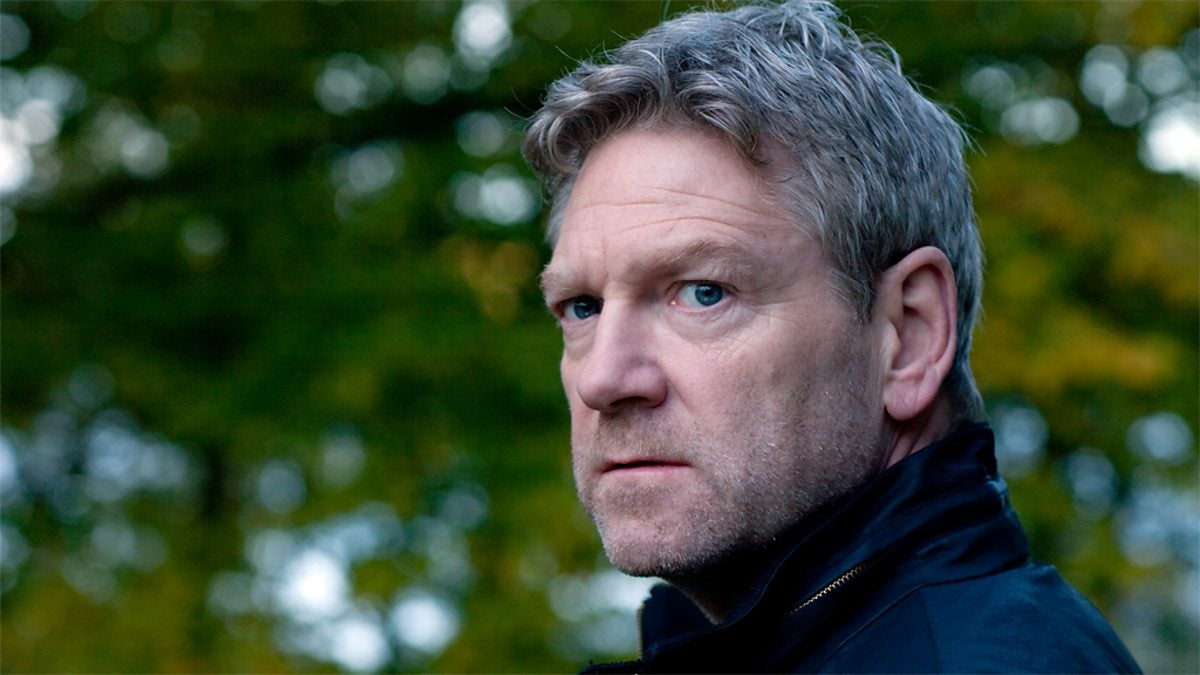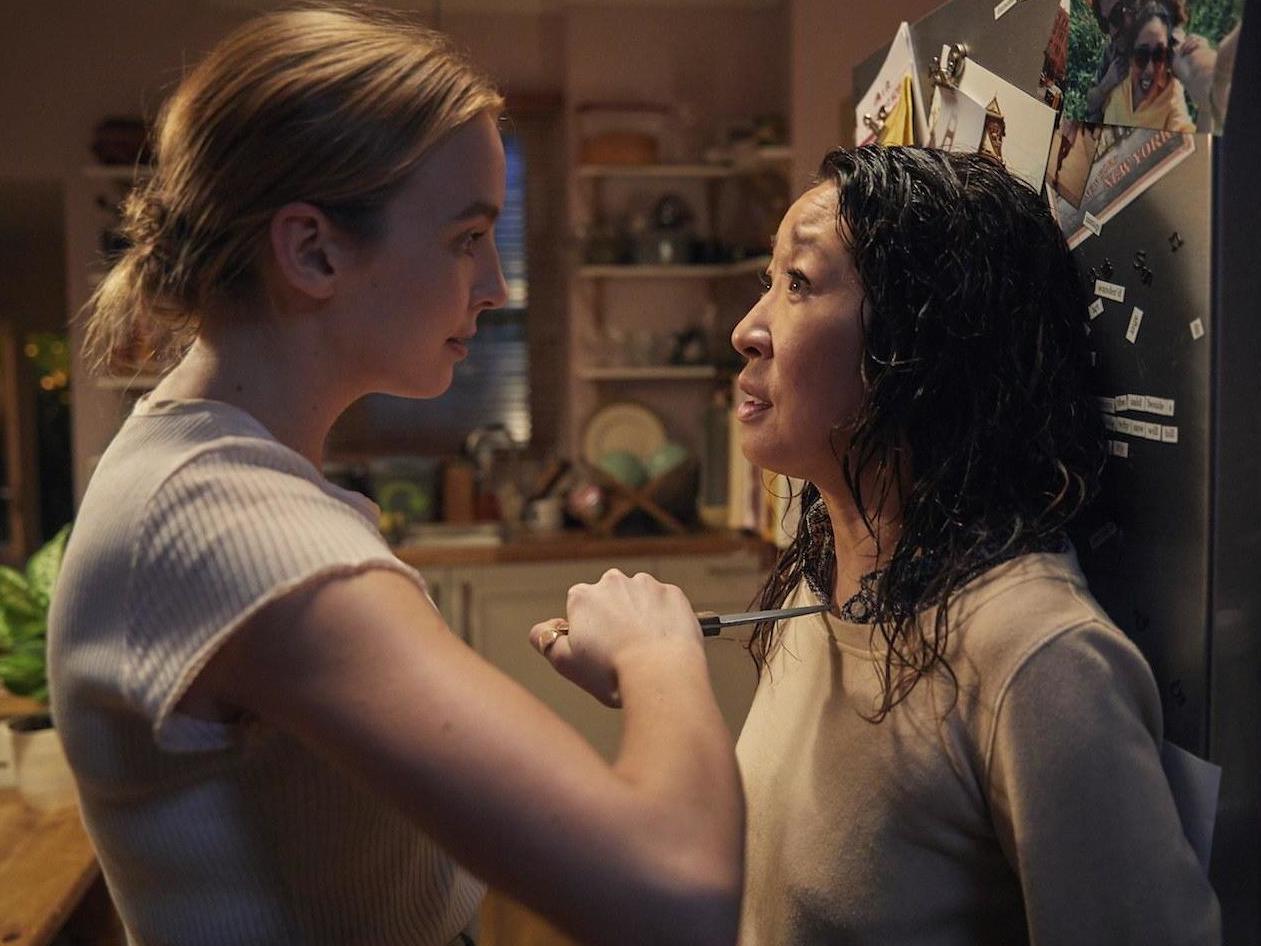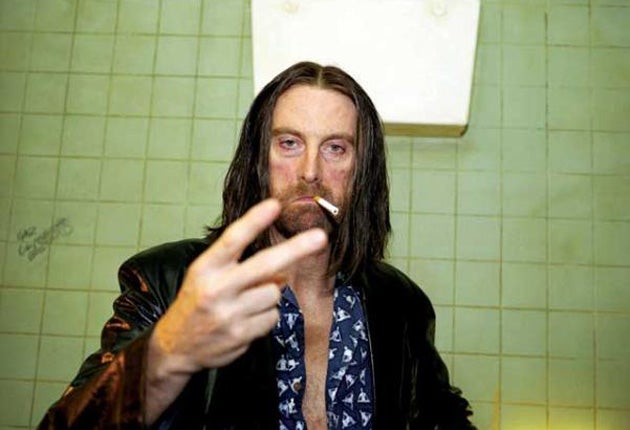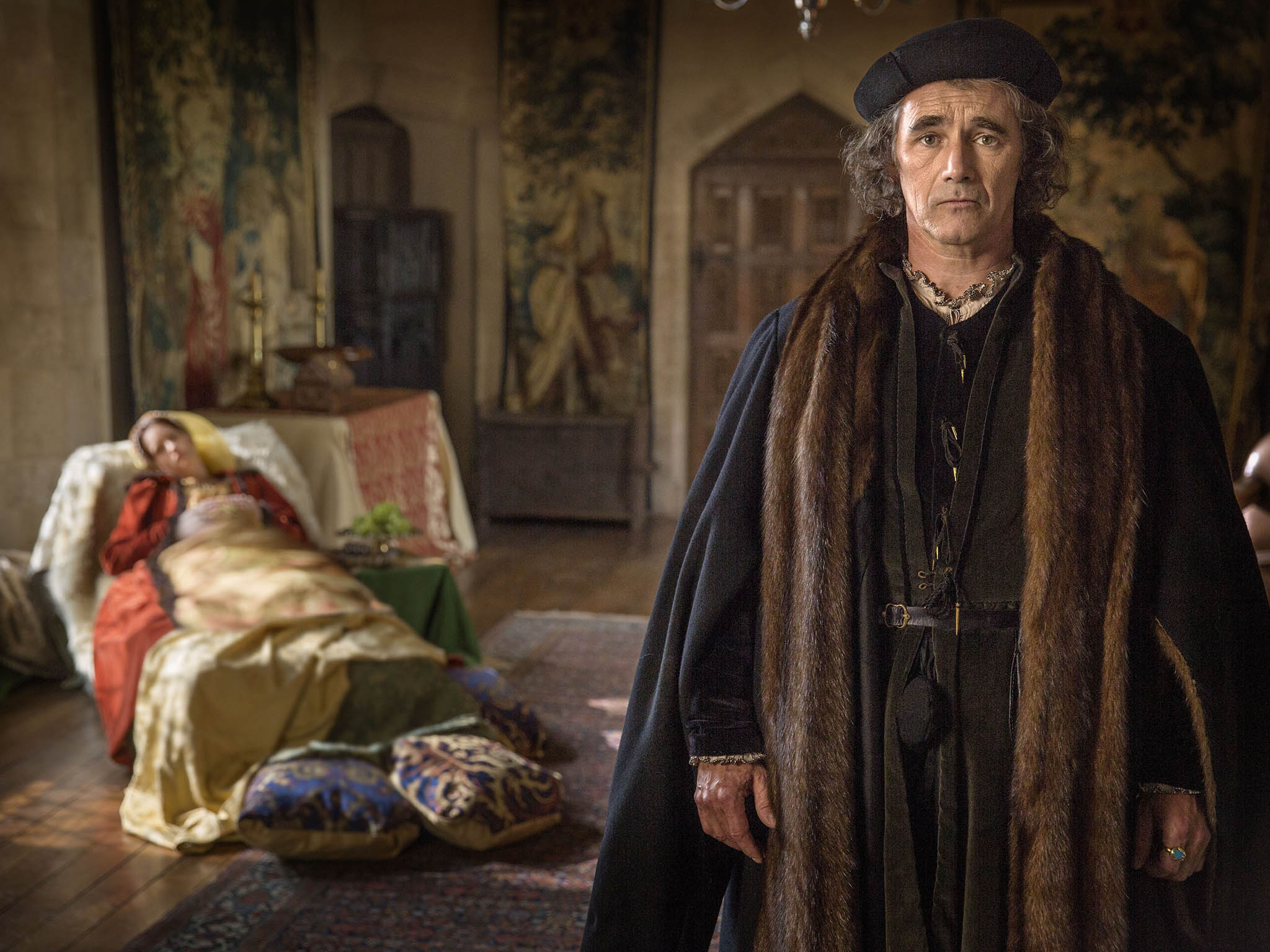This weekend will see some of the UK’s finest television talent going head to head for the Best Drama award at the Baftas, the most coveted gong in British telly. Blue Lights, Sherwood, Wolf Hall: The Mirror and the Light, Supacell: one of these shows will join the pantheon of previous winners.
It’s a list that not only provides a guide to how television has evolved in the years since the early 1970s (when the award moved to rewarding a single project, rather than the oeuvre of a specific creative), but also a very nourishing diet for potential TV consumption. Here, then, are the top 20 winners of the Bafta’s Best Drama award. I make no apology for recency bias, as many of the winners from the 1970s and 1980s are almost impossible to find now, demonstrating the capacity of television to be both energising and ephemeral.
20. The Fades (2012)
When it was announced that no second season of Jack Thorne’s The Fades had been commissioned, there were many unhappy fans. It was a surprising decision, not least since the show had just won the biggest prize in British telly. The supernatural tale of a teenager who can commune with the spirits of the dead, The Fades was the apotheosis of a (brief) cultural awakening for teen dramas, which had been led by Skins (and many of the cast, including Daniel Kaluuya, Joe Dempsie and Lily Loveless appear here) and succeeded by Misfits, which won the same prize in 2010. With a marketably mainstream plot and a tilt towards Gen Z, it’s the sort of project one could imagine the BBC returning to.
19. EastEnders (1997)
Only once has the prize been won by a soap opera, and that was EastEnders in 1997, which fought off competition from the likes of This Life and Ballykissangel to scoop the top gong. The 1990s were a golden period for Britain’s soaps, and in 1996 the residents of Albert Square did enough to tussle with the televisual elites. From Ian Beale being shot by a hitman to Peggy Mitchell’s breast cancer diagnosis (don’t worry, both survived to feature in hundreds more episodes), this was melodrama at its most intense. No soap has been so much as nominated for Best Drama since then, and with the form in an increasingly dire state, it seems unlikely we’ll see such success again. A time capsule, then, but one that paints a portrait of Britain on the brink of the millennium.
18. Wallander (2009)
I, personally, really liked Wallander; the fact that nobody has uttered a single word about it in the past 10 years doesn’t really bother me. Kenneth Branagh took the title role in this superior adaptation of Henning Mankell’s novels, which made superb use of the chilly landscape in Skåne, Sweden. Many of the cliches of the genre – the drinking problem, the ever-present ex-wife, the tortured filial relationship – felt far fresher back in 2008, when the show first aired. And for someone whose Poirot was so grotesquely indulgent, Branagh’s Wallander has an almost self-effacing steadiness that anchors the show in a sense of reality.

17. Peaky Blinders (2018)
Peaky Blinders, Steven Knight’s saga about criminal gangs taking over the streets of Birmingham, has come to represent something about modern masculinity. Its aesthetic – short back and sides, flat caps and waistcoats, a fog of cigarette smoke – has proven a seductive throwback. But that is really a distraction from a show that, at its best, made Tommy Shelby (Cillian Murphy) one of television’s most compelling protagonists. In the age of the antihero – from Mad Men’s Don Draper to Breaking Bad’s Walter White – Tommy is another titan. Knight’s frenetic visual style and brassy plotting make Peaky Blinders a compulsive, if not especially intellectually rewarding, watch.
16. Sherlock/Doctor Who/Spooks (2011/2006/2003)
I’m grouping these three together for the simple reason that they share a vibe. They’re crowd-pleasers, the types of shows that might leave the critical fraternity a bit indifferent, but clearly strike a chord with viewers. Spooks has received six nominations for the Best Drama Bafta, making it the most shortlisted show in the award’s history. But, as anyone who has watched Spooks will know, this isn’t really an award-baiting drama. Like Sherlock and Who, it’s primetime fun for an intergenerational audience, the sort of thing that isn’t often rewarded at glitzy awards ceremonies.
15. Upstairs, Downstairs (1974)
Upstairs, Downstairs is in many ways the prototypical British television show. The ITV series, which ran for five seasons, followed three decades in the same house, 165 Eaton Place, in the posh London neighbourhood of Belgravia. Making the lives of the servants (the “downstairs” workers) part of the narrative is now a staple of shows like The Gilded Age and Downton Abbey (which owes a huge debt to its forebear), but it was an interesting subversion of the standard of Jane Austen and Charlotte Brontë. The show has dated in ways that make repeat viewing hard (it feels extremely stagey), but the influence of Upstairs, Downstairs continues to be felt.
14. The Street (2007, 2008)
Jimmy McGovern had already scored consecutive victories with Cracker in the Nineties and managed to repeat the trick in 2007 and 2008 with The Street, a snapshot of life on a residential road in Manchester. The show, which ran for three seasons, deployed an all-star cast – including a range of Harry Potter alums like Jim Broadbent, Timothy Spall, and both Davids Bradley and Thewlis – to demonstrate the variation and complexity of the lives on a single urban street. Bafta, as this countdown will demonstrate, has always been positive about Northern voices getting a primetime airing, and if McGovern is the Chaucer of the northwest, then The Street is his Canterbury Tales.

Watch Apple TV+ free for 7 day
New subscribers only. £8.99/mo. after free trial. Plan auto-renews until cancelled.
Try for free
ADVERTISEMENT. If you sign up to this service we will earn commission. This revenue helps to fund journalism across The Independent.

Watch Apple TV+ free for 7 day
New subscribers only. £8.99/mo. after free trial. Plan auto-renews until cancelled.
Try for free
ADVERTISEMENT. If you sign up to this service we will earn commission. This revenue helps to fund journalism across The Independent.
13. Killing Eve (2019)
Phoebe Waller-Bridge’s 2019 winner, Killing Eve, is a classic example of a show that stayed too long, the results diminishing season by season. But that should take nothing away from its scintillating arrival on the scene with Jodie Comer as the deliciously wicked assassin Villanelle, and Sandra Oh as her British intelligence foil, Eve. It is a rare British crime show that feels as big and pulpy as its American brethren, which is possibly why it became a huge international hit. Even if the show fizzled in later seasons, a prequel is now in the works focusing on Fiona Shaw’s Carolyn Martens (another breakout character in a series that has a fair few), which might rediscover that early magic.

12. Top Boy (2024)
Ronan Bennett’s hit show about London gangsters – which has been on Netflix since 2019, having started life on Channel 4 – won the top gong last year, beating off stiff competition from the likes of Happy Valley and Slow Horses. The saga of Dushane (Ashley Walters) and Sully (Kane “Kano” Robinson) came to a bloody end in its fifth season, showing the merciless futility of struggling to be top dog in an unpredictable world. Showcasing the depth of Black British acting talent, Top Boy has demonstrated that mob bosses don’t have to wear pinstripes and wield tommy guns. Refreshingly urgent, Top Boy is a show that will continue to feel current for many years to come.
11. Oranges Are Not the Only Fruit (1991)
The early days of the Best Drama Bafta were dominated by adaptations of canonical writers like Somerset Maugham, Evelyn Waugh and Vera Brittain. The 1990 adaptation of Jeanette Winterson’s Oranges Are Not the Only Fruit – which beat out Poirot, Morse and House of Cards to win the prize – provided something quite different. The drama, about a lesbian awakening within a strict Pentecostal community, showed how Bafta voters had become increasingly political during the 1980s. It feels, now, like an enclave of refreshing radicalism: in the 1990s, crime drama, including gentle shows like Morse and Jonathan Creek, would assert their dominance.
10. Broadchurch (2014)
It’s easy to forget what a sensation ITV’s Broadchurch was when it first aired in 2013. It came at a moment when watercooler TV shows were transitioning from terrestrial channels to the new streamers, yet it proved how powerful a compelling drama could still be, regardless of the platform. In its detective stars, David Tennant and Olivia Colman, the series found a potent combo, but our collective interest hung on the whodunnit. A child is found dead on a Dorset beach, and the crime sends shockwaves through the community. For all the crime dramas that have come before and since, none has expressed grief quite as convincingly or empathetically as Broadchurch, particularly in the figure of mourning mother Beth, played by Jodie Whittaker.
9. Traffik (1990)
It may not seem so radical now, but when Traffik first aired in 1989, the idea of tracking the global trade in drugs – from the Pakistani poppy growers, through continental transit, and to the drug addicts on the streets of Britain – was completely novel. Simon Moore’s six episodes – from “The Farmer” to “The Courier” – would later serve as a template for Steven Soderbergh’s Hollywood reimagining, Traffic, but for the Bafta jury in 1990 it was a sharp, insightful dissection of an epidemic that was starting to gain traction in tabloid column inches. Recent shows about the opioid crisis, like Dopesick and PainKiller, owe much to Traffik’s snout-to-tail approach to narcotic production.
8. Shameless (2005)
When Shameless – the story of a Mancunian family led by dysfunctional patriarch Frank (David Threlfall) – first aired, few would have guessed that it’d run for 11 seasons and spawn a fancy American adaptation. But the commissioners at Channel 4 saw something in Paul Abbott’s Gallagher family that audiences, and Bafta voters, responded to. Funny, chaotic, at times very bleak, life on the Chatsworth estate was as far as possible from the stuffy period dramas that had dominated British telly (the fact that Chatsworth is also the name of the stately home where the 1995 Pride and Prejudice was filmed is no coincidence). Shameless significantly moved the dial on what gets made in this country, and that was no bad thing.

7. Edge of Darkness (1986)
It wasn’t until 1992 that Bafta introduced the Limited Drama category, which means that, in the 1980s, there was a bunfight between the ongoing serials, and shows like Edge of Darkness, which unfolded over just a handful of episodes. Troy Kennedy Martin’s drama focuses on a police officer, Ronald Craven (Bob Peck), whose daughter is gunned down in front of him. Over the course of a sextet of episodes, Craven unriddles a conspiracy that gets to the heart of the establishment. A fierce critique of Thatcherism and nuclear proliferation, the show proved a monster hit for the BBC – not just gaining big awards but also attracting a nightly audience of 8 million viewers. Naturally, it was remade in America, with Mel Gibson in the starring role.
6. Last Tango in Halifax (2013)
Sally Wainwright’s Yorkshire-based series The Last Tango in Halifax came out of nowhere and seemed to immediately infatuate the nation. The story of an older couple – played by Derek Jacobi and Anne Reid – whose late-in-life romance forces their two grown-up families to collide, Last Tango demonstrated the longing that audiences felt for TV that affirmed connection rather than relentlessly repudiating it. Tonally, it is a far cry from Wainwright’s masterpiece, Happy Valley, yet there is a shared sense of humour and humanity that unifies these portraits of life in the West Riding.
5. Brideshead Revisited (1982)
Back when the period drama still reigned supreme over British television, much of the quality of a show was dictated by its source material. Adapt an indifferent book, and you’d almost inevitably end up with an indifferent show. Derek Granger’s adaptation of Evelyn Waugh’s Brideshead Revisited, then, is lucky to be extracted from a literary banger. The tale of a naïf, Charles Ryder (Jeremy Irons), who is lured into the orbit of the delightfully stunted Sebastian Flyte (Anthony Andrews), it is a story that grapples with questions of wealth, class, religion and war. This adaptation was a sensation at the time, not least due to the superb casting choices, and a lavish, reverential mounting of its source.
4. Boys from the Blackstuff (1983)
If there is one show that best typifies how art and drama responded to the Thatcher years, it might well be Alan Bleasdale’s Boys from the Blackstuff. The Scouse playwright had become an established figure through the Beeb’s Play for Today, but Boys from the Blackstuff took his work to another level. Five unemployed men attempt to make ends meet in working-class Liverpool, but their desperate yet darkly comic exploits often make matters worse. Foremost among them was Yosser Hughes, played by the late Bernard Hill, who became a figure in the zeitgeist, whose mental disintegration and chantlike refrain – “gizza job” – foregrounded the hopelessness of out-of-work men. James Graham, whose show Sherwood is nominated this year and who adapted Blackstuff for the stage, owes Bleasdale a huge debt of gratitude.
3. Wolf Hall (2016)
The second chapter of the BBC’s adaptation of Hilary Mantel’s Cromwell trilogy – The Mirror and the Light – is one of the favourites to take the prize this year. But back in 2016, the first half was an absolute shoo-in. Starring Mark Rylance as Thomas Cromwell, Damian Lewis as Henry VIII and Claire Foy as Anne Boleyn, the series managed to exquisitely and sensitively evoke life in the Tudor court, as well as catching, somehow, the sense of fragmented interiority so crucial to Mantel’s books. Peter Straughan – who won an Oscar this year for writing Conclave – works wonders with the script. For a country fascinated by dramas that resurrect our nation’s history, Wolf Hall is a rare historical portrait of human authenticity.

2. Cracker (1995, 1996)
Scottish actor Robbie Coltrane had already proven a hit with Bafta voters when Tutti Frutti won Best Drama in 1988, and so the back-to-back wins for Cracker in the 1990s feel less surprising. Yet that feat, matched only by another Jimmy McGovern show, The Street, and the BBC’s The Cops and Inspector Morse, is testament to how compelling Coltrane’s Fitz is. A police “cracker”, responsible for psychological analysis and interrogation of criminal suspects, Fitz was your classic antihero. A slovenly, alcoholic, cantankerous gambling addict, he was also fiendishly brilliant, witty and enthralling on the screen. Cracker feels like a staple of British crime drama, yet only ran for some 25 episodes, showing how lasting its impact has proved.
1. Happy Valley (2015, 2017)
The first appearance of Sally Wainwright’s Happy Valley, back in 2014, demonstrated the continued power of a word-of-mouth hit. The show, which revolved around Sarah Lancashire’s police officer Catherine and her quest for closure over the death of her daughter, was the sort of gripping appointment viewing that TV programmers dream of. But more than that, the series elevated the police procedural to an examination of grief, human nature and inheritance, all delivered through dialogue both wickedly witty and deploying a cadence unique to Wainwright. It is about as good a drama as Bafta, or anyone, is likely to find.




